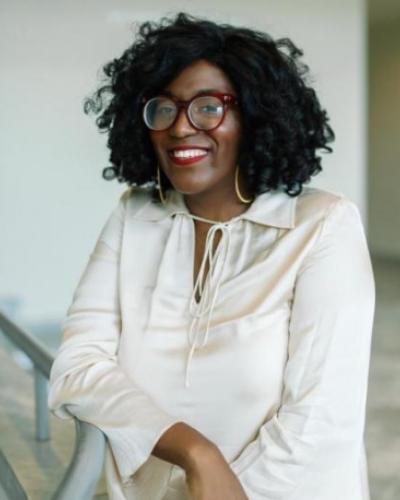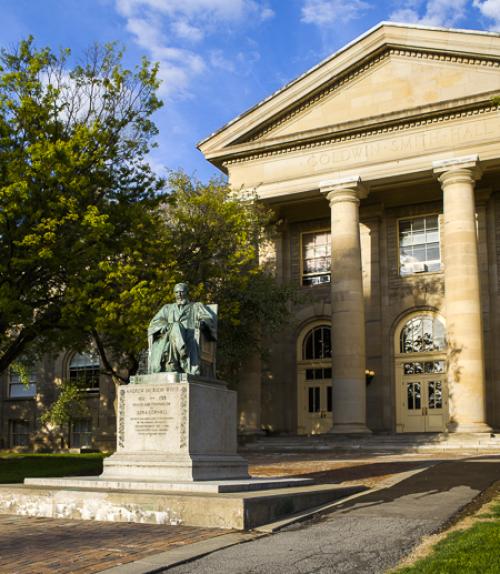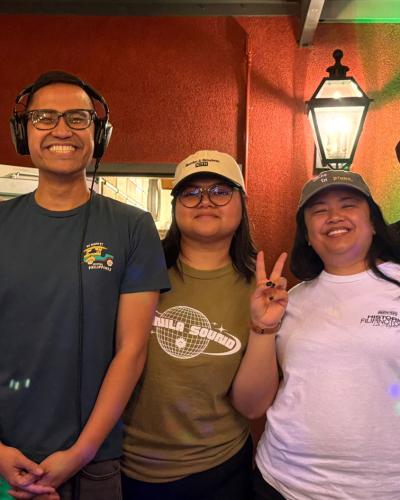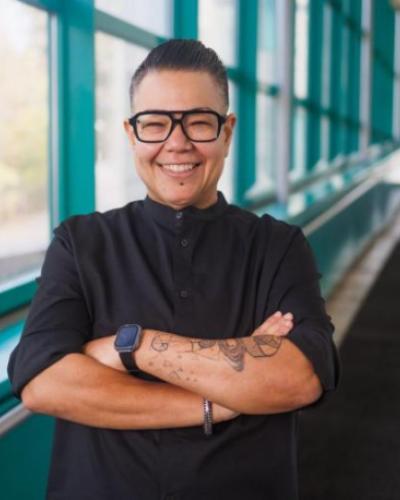For his dissertation research project, doctoral student Elaigwu Ameh is working this summer with internally displaced persons (IDPs) in Nigeria to advance men’s involvement in family planning decisions.
Ameh’s current project in Nigeria builds on two summers of pre-dissertation research in the west African nation. Supported by an Engaged Graduate Student Grant from the Cornell University Office of Engagement Initiatives and in partnership with the Nigerian National Emergency Management Agency (NEMA), Ameh’s research project, “Refuge in Theater: Men, Family Planning and Internal Displacement in Nigeria,” uses performance ethnography to educate and promote positive change in a population for whom birth rates have spiked, adding additional pressure to overtaxed humanitarian aid in the country.
Interacting with IDPs after a story circle on family planning decision-making
With the knowledge that men’s attitudes toward family planning affect their partners’ choice whether to use contraception, Ameh uses theatre techniques to engage the IDP community in discussions about family planning, masculinity, and internal displacement. Ameh also hopes to highlight IDPs as valuable, contributing members of society and agents of change, instead of generalizing their status as helpless marginalized people.
“My experience in the field has been inspiring as it has been demoralizing. It has brought me to a greater understanding of the rich repositories of knowledge that are displaced persons. It has also made me realize how far as a people we have drifted away from recognizing the humanity of others with whom we share the globe," says Ameh.
Taking notes during a group discussion after a story circle session with internally displaced persons in Bakassi IDP camp, Maiduguri, Nigeria
“Rather than treat IDPs according to dominant narratives which often portray them as a time bomb waiting to explode and kill the rest of us, or as infectious diseases warranting quarantine or extermination, this theater-mediated research seeks to provide a counter-narrative that distills IDPs’ affective humanity and repurposes their otherness towards creative diversity and social cohesion.” — Elaigwu Ameh
Listening to the concerns of a displaced person during a needs-assessment session in Bakassi IDP camp, Maiduguri, Nigeria
“In my conversations and story circles with internally displaced persons, some issues are recurring, one of which is that displacement is not just about statistics but about real people dithering at the margins between hope and despair, between the never-ending present and the elusive future, and between the allure of life and the perceived imminence of death.” — Elaigwu Ameh
A story circle with internally displaced women
“IDPs, because of their reality of displacement and their dependence on humanitarian aid, do experience aid as affectively energized within the context of their interactions with both state and non-state humanitarian actors. Easily, aid can become an instrument of power in the hands of humanitarian actors. How simply IDPs access aid, as well as the quality, quantity, frequency, and timeliness of the aid they receive can also become a matter of their affective relationships with humanitarian actors or how well these actors perceive them to be performing this relationship of power and dependency.” — Elaigwu Ameh




